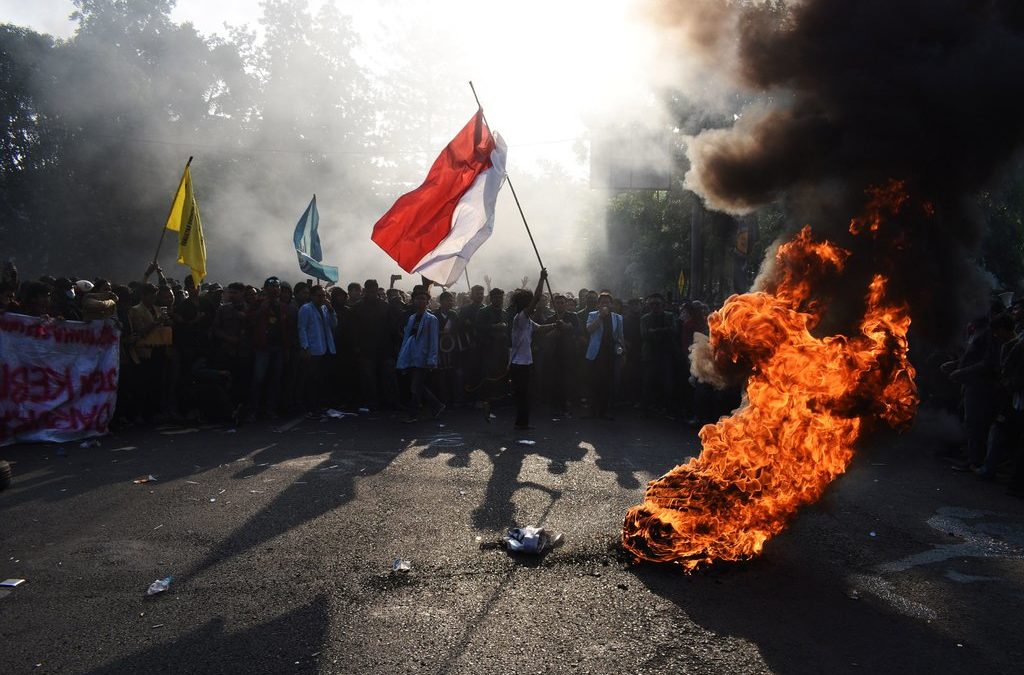Source: The New York Times, September 25 2019
JAKARTA, Indonesia — Indonesia’s president, Joko Widodo, preparing for his second term, faces a sudden loss of public support amid mounting crises, including student protests, burning forests and deadly violence in distant Papua province.
Mr. Joko won re-election handily in April, defeating his main rival by 11 percentage points. But even before his scheduled inauguration next month, his handling of a controversial corruption bill threatens to undermine his second-term agenda.
The president’s popular support began falling, political analysts said, when he approved passage of legislation this month to strip the respected Corruption Eradication Commission of key powers, including the authority to wiretap public officials suspected of wrongdoing.
Student protesters have called on Mr. Joko to revoke the measure and restore the commission’s power by issuing an emergency decree, but he said on Monday that he would not.
“The revision of the law on corruption was the blunder that made the public very angry with him,” said Djayadi Hanan, executive director of the Indonesia Survey Institute, an independent polling group. “He has to start by winning back the public trust and the only way to do that is to repeal the law.”
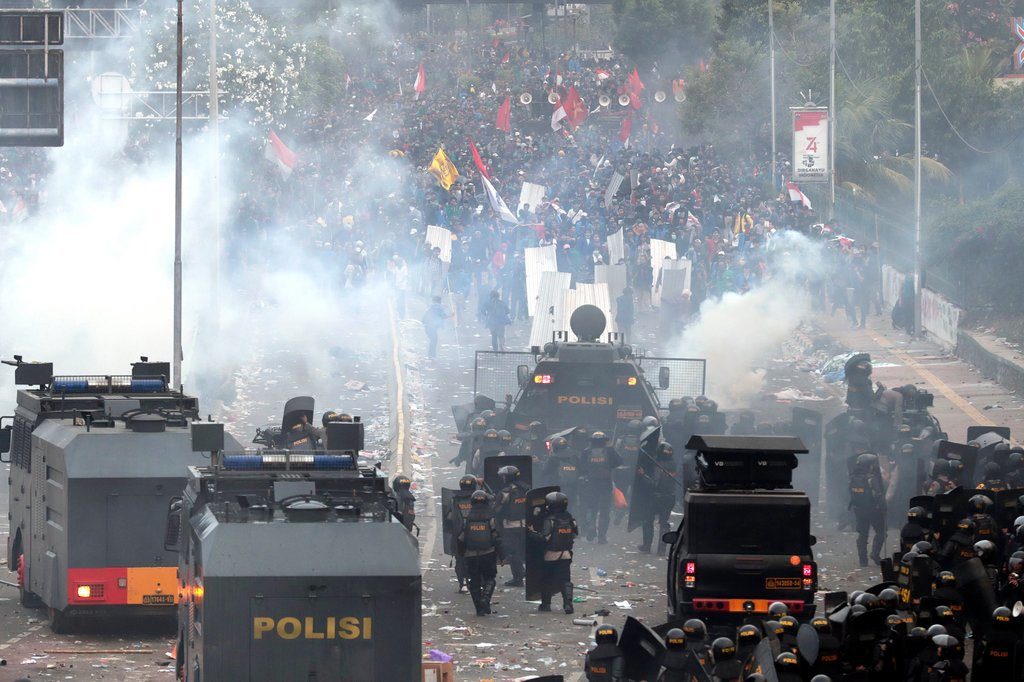
Thousands of angry students staged protests in major cities this week over the corruption law and other legislation, including a far-reaching overhaul of the criminal code, that are seen as benefiting the elite while depriving ordinary people of important rights.
In Jakarta, the Indonesian capital, a crowd estimated at more than 10,000 protested outside the Parliament building on Tuesday, blocking traffic, pulling down fencing and torching a police post. The protests continued into Wednesday.
The police fired tear gas and water cannons to prevent demonstrators from entering the compound. Officials said dozens were arrested and 265 protesters and 39 police officers were injured.
The students’ list of demands has grown beyond the corruption bill, including ending the burning of Indonesia’s rainforests and punishing corporations responsible for forest fires; halting military action in Papua and freeing political prisoners; and rejecting legislation that would give companies greater power over natural resources, ban sex outside marriage and limit freedom of expression.
Nearly 2,000 fires continued to burn out of control in Indonesia’s forests on Wednesday, causing respiratory problems for nearly a million people. Many of the fires were set illegally by palm oil plantations and other companies to clear land for more planting, the authorities say.
[Fires Rage in Indonesia, Turning the Sky Red.]
Critics contend that lax enforcement against palm oil and paper products companies during Mr. Joko’s first term has encouraged the continued burning of the rainforests, a significant contributor to the greenhouse gases that cause climate change.
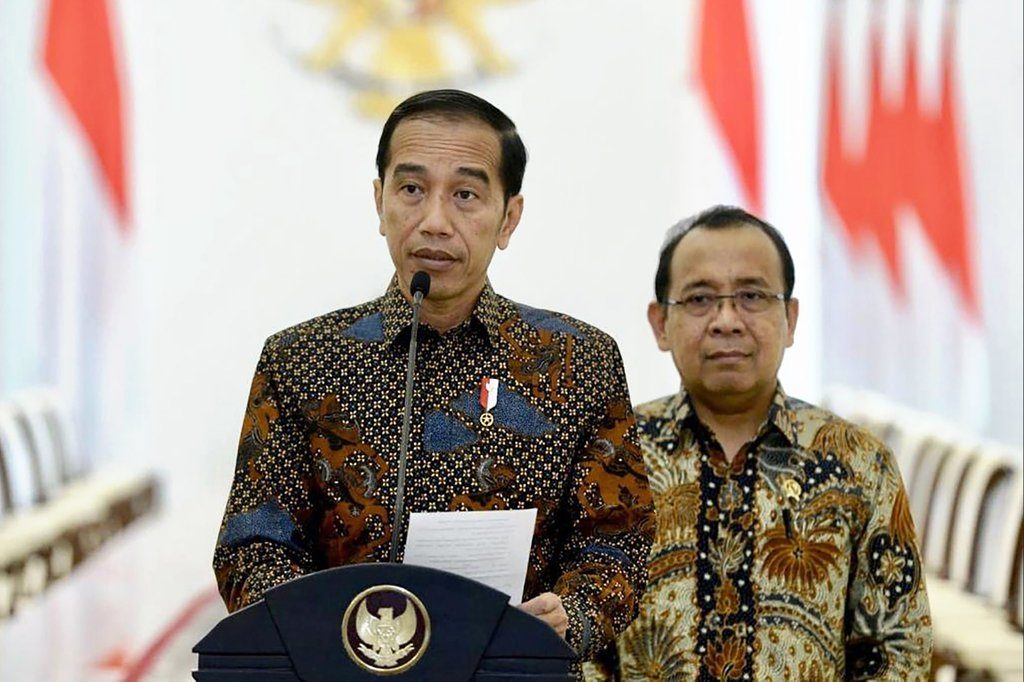
In Papua, Indonesia’s easternmost province, at least 32 people died on Monday in antigovernment protests. Many victims died in buildings that were set on fire, the authorities said.
Papua, which makes up the western half of the island of New Guinea, was annexed by Indonesia in the 1960s and has been the scene of a low-level war of independence ever since.
Most of Monday’s victims were nonindigenous Papuan people, the police said. Indonesian officials blamed the deaths on activists who sought to attract international attention to their struggle for independence during this week’s United Nations General Assembly session in New York.
Mr. Joko, a former furniture manufacturer and Jakarta governor, has long cast himself as a man of the people, and he campaigned on a promise to crack down on widespread corruption.
Until now, the Corruption Eradication Commission has operated with unusual autonomy and has had considerable success in bringing down corrupt politicians.
Mr. Joko surprised many of his supporters by backing the legislation that would undermine the commission by creating an advisory body to supervise its activities.
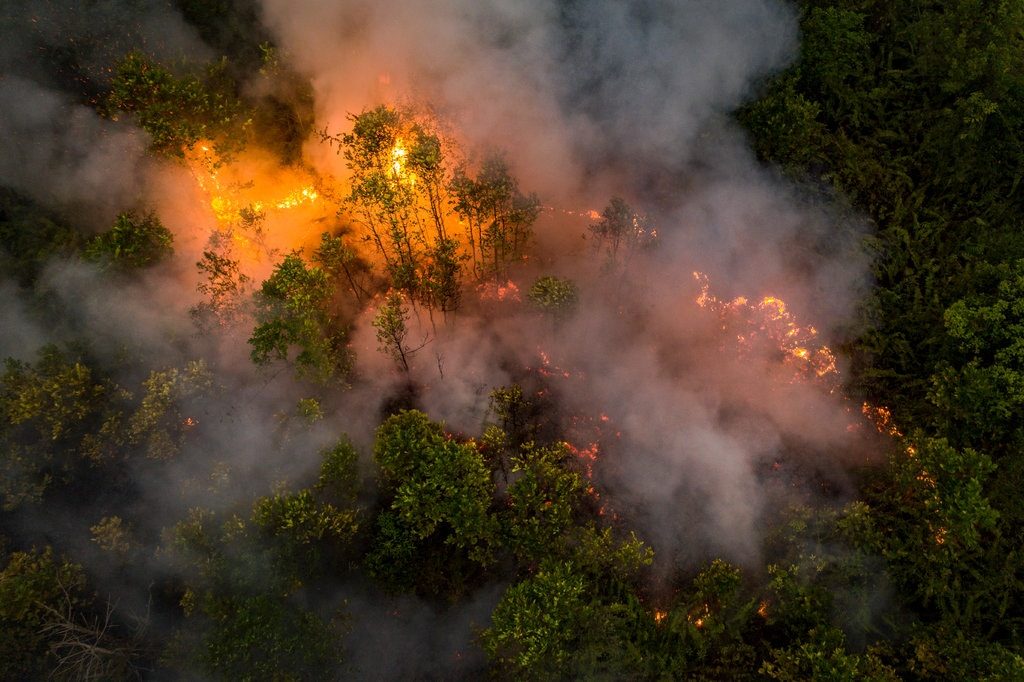
The commission’s independence would also be undermined by a requirement that it hire its staff from among civil servants rather than from outside government.
Although the bill passed Parliament with Mr. Joko’s approval, he has the power to repeal it by issuing an emergency declaration. Continuing street protests could give him the pretext he needed if he were to change his mind.
The question for the president, Mr. Djayadi said, was whether the benefit to his powerful allies of gutting the corruption commission outweighed the loss of public support it was creating as he begins his second five-year term.
“Maybe losing some trust of the public is not a big issue for Jokowi,” he said, using the president’s nickname. “If he is thinking that public support is no longer important to him, he can continue with this corruption law.”
Andreas Harsono, senior Indonesia researcher for Human Rights Watch, said the corruption measure was just one part of a three-pronged effort by the outgoing Parliament to benefit Indonesia’s oligarchs.
Several bills that were under consideration by Parliament would give businesses greater control over land, mining and other natural resources. One bill privatizing water supplies has already passed.
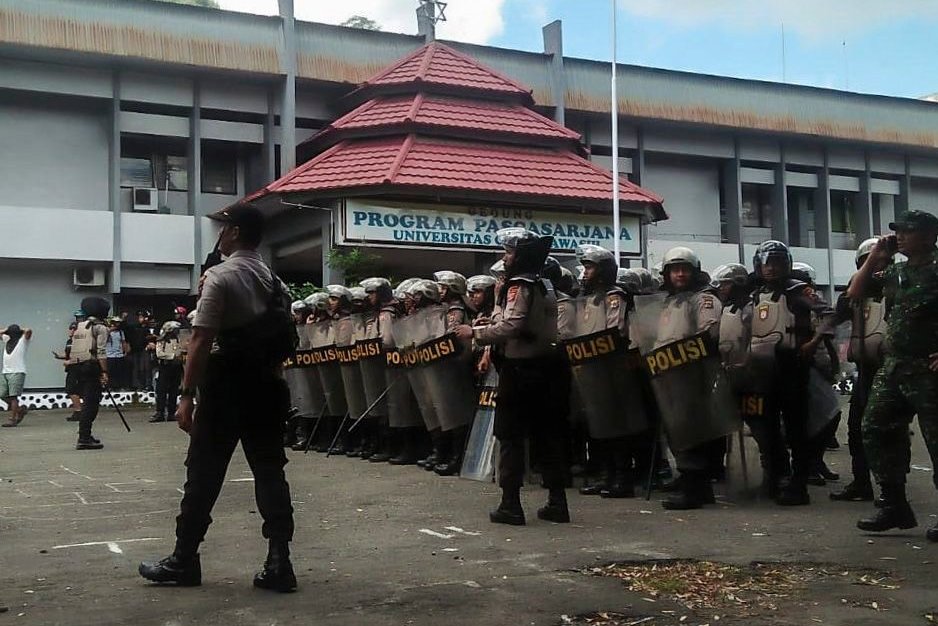
The broad revision of the criminal code would have enacted numerous proposals favored by hard-line Islamists, such as banning sex outside marriage, effectively banning gay and lesbian relations.
It would also have curtailed free expression by strengthening blasphemy and treason laws and prohibiting insulting the president, the vice president, the government or state agencies.
Mr. Joko called on Parliament last week not to pass the measure before its five-year session ends on Monday, but it is likely to be reintroduced once the new Parliament is seated.
Obed Kresna Widyapratistha, a student at Gadjah Mada University in the city of Yogyakarta, said he had joined in protests there in part because of his opposition to the crime bill and its intrusion into private affairs. He also said Mr. Joko was too closely aligned with political elites and generals who served under the former dictator Suharto in the era known as the New Order.
“As a citizen who looks at the government from the outside, I feel that Jokowi has compromised too much with the New Order generals, with the political parties, with the political oligarchs in this country,” he said. “I am very disappointed.”
Dodi Ambardi, a professor of political science at the same university, said Mr. Joko might be willing to compromise on corruption eradication and intrusions in people’s private lives for the sake of achieving his top priority: stimulating economic growth.
Mr. Joko, he noted, was barred from running for a third term and might have concluded that popular support at this moment was not crucial and that winning the support of members of Parliament and local officials — all of whom feared the power of the corruption commission — might be more important in enacting his policies.
“This is the second term of Jokowi and he will not run again,” Mr. Dodi said. “Electoral support is not needed. Running the government effectively and efficiently is more important for Jokowi.”
Muktita Suhartono contributed reporting.

